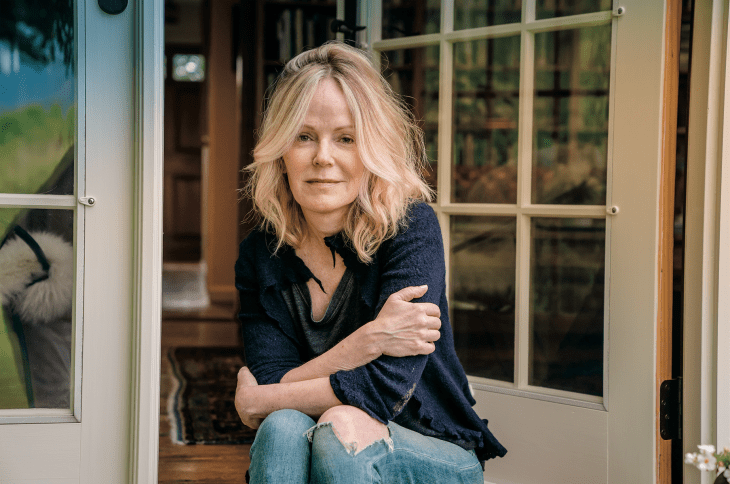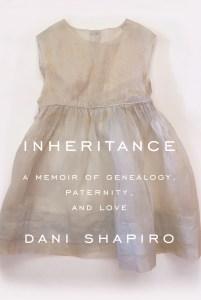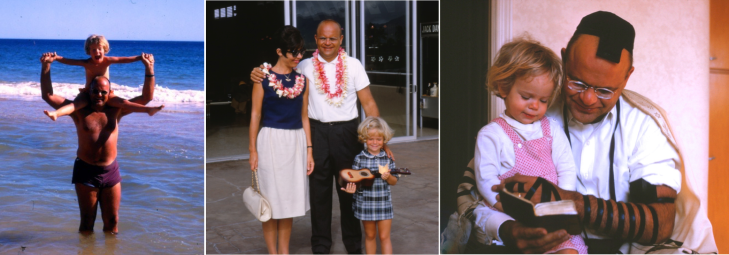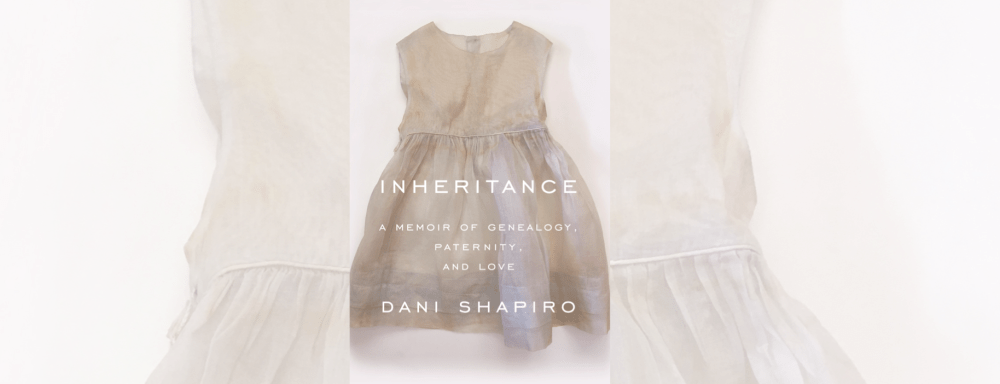
As an adoptee in a closed adoption, I’ve observed the growth of DNA testing in recent years with both interest and apprehension. The bright faces, tearful reunions, testimonials of instant, effortless connection — I’m glad it worked out for you, I think, but would I ever truly feel ready for that? Eventually overcome by curiosity, I called on Ancestry.com last year. I was mostly interested in my ethnicity, but when given the option to match my DNA with relatives, I agreed.
After two months, I received my results, discovered I’m very Swedish, and in no time was connected to a second cousin. It was three in the morning just hours later when she put together who my birth father was. Unable to sleep, I’d been scrolling through Swedish art on Etsy when my phone lit up with a notification from her: my father’s picture, then a picture of his mother. Those are my eyes.
One after the other in quick succession, I discovered more relatives: my biological mother, two half-sisters, two half-brothers, aunts, cousins, a grandmother. And it was right around then — with perfect timing — that Dani Shapiro’s upcoming memoir, Inheritance, came to my attention.

“A compulsively-readable investigation into selfhood that burrows to the heart of what it means to accept, to love, and to belong.” —Anthony Doerr, author of All the Light We Cannot See
In this book, Shapiro’s fifth memoir (she has also written five novels), she mines for the truth of who she is after taking a DNA test on a whim and making a shocking discovery: the father who raised her along with her mom was not, in fact, her biological father. (Read more about it in this recent Wall Street Journal profile.) Often when reading memoir, I feel my position as a reader is to bear witness while the writer reflects back on life after the dust has settled. The writer speaks from a grounded place, even if she’s writing about an ungrounded past experience. On the contrary, when reading Inheritance, I felt immersed in the storminess of Shapiro’s experience as she considers how this genetic discovery could possibly coexist with what she has always believed about herself and her family. What do we inherit and from whom — and how does it shape who we become? Inheritance takes these essential questions to heart.
All my life, my past has been infinite, my origins infinite. I might’ve come from anywhere, from anybody, every version I dreamed up more glamorous than the last. To know the actual people who made me is to let go of the infinite, to turn away from fantasy and look at the faces before me. It’s a complicated shift not always captured in reunion stories. Throughout this process, Inheritance became a life raft for me, as it will for anyone whose origins have been brought to light and who now must integrate that knowledge into identity. –Betsy Coughlin
Please join us on Wednesday, January 30, 2019, at 6:30 p.m. here in the store, as we welcome Dani Shapiro for a discussion and book signing. Inheritance will be published on January 15; meanwhile, you can pre-order your copy today and enjoy this Q&A with the author right now.
Betsy Coughlin: You write about how your relationship with your appearance — your face in the mirror — shifted throughout your life, especially when you first discovered your biological heritage. (I’ve experienced something similar; I’ve never felt so at rest in my own face since I learned where it comes from.) Fascination with physical appearance can sometimes be dismissed as a superficial concern — but could you speak to how compelling it is, the desire to know and understand one’s own reflection?
 Dani Shapiro: Absolutely, and what a great question. I never really thought much about my relationship to my reflection in the mirror until I made the discovery that my dad hadn’t been my biological father. Suddenly so much became clear — mostly the way I had been absorbed, more than usual, I think — both as a child and as a young woman — with the way that my face somehow didn’t make sense. I didn’t look like either of my parents, really — but it was stark when it came to my dad and his family. I was very fair, blue-eyed, pink-cheeked, and they were quite dark, olive-skinned — but it wasn’t only our different complexions or coloring. I looked like I came from a different part of the world than they did — something I always felt, and pushed away. But it was true. And that truth has been enormously liberating. I love what you say, in your question, about feeling at rest in your own face. The same is true for me.
Dani Shapiro: Absolutely, and what a great question. I never really thought much about my relationship to my reflection in the mirror until I made the discovery that my dad hadn’t been my biological father. Suddenly so much became clear — mostly the way I had been absorbed, more than usual, I think — both as a child and as a young woman — with the way that my face somehow didn’t make sense. I didn’t look like either of my parents, really — but it was stark when it came to my dad and his family. I was very fair, blue-eyed, pink-cheeked, and they were quite dark, olive-skinned — but it wasn’t only our different complexions or coloring. I looked like I came from a different part of the world than they did — something I always felt, and pushed away. But it was true. And that truth has been enormously liberating. I love what you say, in your question, about feeling at rest in your own face. The same is true for me.
BC: At times it’s difficult for me to grasp my own search story, because I don’t feel it was entirely my choice — I wasn’t totally prepared for the information to fall into my lap. I wonder how you contend with the technology at work in your story. Is the ability to be “matched” with strangers a good thing or a bad thing? And do you think most people are fully prepared for what DNA testing will enable them to find out?
DS: So many people are doing DNA testing, and for different reasons. For some, it’s idle curiosity, or a sense that maybe they’ll make an interesting (but not too interesting) discovery about some sliver of their heritage, or perhaps find a third cousin. Others do DNA testing because deep down they’ve always suspected something was amiss. But regardless, secrets are tumbling out at such a rapid rate these days, and there is no preparing for making such a monumental discovery that speaks to the very core of identity. Not to mention the sense that many feel betrayed by one or both parents withholding such an essential piece of information.
But regardless of whether we are prepared, the cat’s out of the bag regarding DNA testing. The technology is here to stay, and pretty soon there will be no more secrets involving paternity, or maternity. Ultimately, I think that’s a good thing — even though it has been shocking, of course — but a good thing, because when there’s a closely-held secret about our identity, we’re formed by what we don’t know, the unspoken, the hidden; ultimately it’s liberating to know the truth of ourselves. As a friend said to me in the early days after my discovery: “Once you get to the other side of this, you will be free.”
BC: You wrote this book with a speed and urgency unlike that of your previous memoirs, correct? How else was the process of writing Inheritance different?
 DS: When I made the discovery about my father, it was days – literally days – after I had finished Hourglass, my last book. It was such crazy timing – timing I now view as quite miraculous, because if I had discovered the truth of my identity while still working on Hourglass, I would have had to put that book aside. This journey was one of complete, total absorption. It was literally the story of me, of how I came to be.
DS: When I made the discovery about my father, it was days – literally days – after I had finished Hourglass, my last book. It was such crazy timing – timing I now view as quite miraculous, because if I had discovered the truth of my identity while still working on Hourglass, I would have had to put that book aside. This journey was one of complete, total absorption. It was literally the story of me, of how I came to be.
My editor and I have joked that Inheritance is the book I was born to write, but in fact there’s truth in that. I began researching, reporting, taking notes almost instantly. I was propelled by the concern that most of the people who might know anything about the history of my conception, or who had known my parents, would have been very old, if they were still living. And so I began calling folks in their late eighties, early nineties. Family friends, relatives, doctors, rabbis, experts — I was in a state of shock, but fueled by a profound need to learn everything I possibly could. I began writing pretty quickly too — attempting to stitch together a narrative as it was unfolding. Of course, as I always tell my students, this is impossible: to write from the center of a trauma. But I decided that those rules didn’t apply to me. When I was about two hundred pages into the manuscript, I went on book tour for Hourglass and had to put it aside for a while. When I returned to it, I re-read it and my heart sank. I threw those pages away and started anew, this time with just enough distance to be able to tell the story.
BC: For those who wonder whether you ever considered giving up on your investigation into your DNA results: What drove your decision to move forward?
DS: Well, it should be said that my investigation into my DNA results — the identifying and contacting of my biological father — took about a nanosecond. Or thirty-six hours, to be precise. It was insanely fast, rather miraculous. But I think that if it hadn’t been so fast, I would have kept going for as long as it took. I wanted to understand who — biologically — I came from. It felt urgent, essential.

BC: Since writing Inheritance, I imagine you must have been — and will be — approached by so many people whose experience echoes your own with DNA testing. What is that connection like? And how are you feeling about going on book tour this time?
DS: I’m hearing stories every single day, and the book isn’t even out yet! When I speak with someone who is in the throes of a life-altering discovery about their identity, all I want to do is be able to help them, to guide them to resources – and to let them know that they won’t always be dizzy with shock. That time heals. On my website I’ve created a place with helpful links for those who have made DNA discoveries, since of course I won’t be able to speak to each person directly. Many thousands of people are making these discoveries now.
I’m actually really looking forward to this book tour, because I want to talk about it. I feel a sense of purpose in speaking about my experience. I’ve learned so much about what makes a family, about the power of secrecy, about the burden of otherness, about technology and the impossibility of the human heart to keep up with our scientific advances. There’s a purpose in this publication, which feels somewhat different from all my other books. Also, as I travel across the country, my public conversations are going to be with writers, certainly, but also with bioethicists and spiritual leaders. I feel very lucky, and very grateful. I’m glad I discovered the truth of me. And that I could find the words to express that truth.
BC: One of my favorite parts of Inheritance is the role of Judaism. You question your Jewish identity but still call upon it to help you find meaning. Can you tell us what that was like while writing — the relationship between your religious background and the exploration of your newfound origins?
DS: That’s been a very interesting part of my journey. I was raised in an observant Jewish home. It turns out that I am biologically half-Jewish (which explains some aspects of my feeling “other” as I grew up) but psychologically, spiritually, I’ll always be Jewish. My connection with my dad, the dad who raised me, was strong and deep, and rooted in his observance. Though I am not remotely religious, so much of my life, as a wife, a mother, a human being, comes directly from that place. But — to go back to the idea of liberation — it’s also liberating to understand where certain aspects of my nature, and my physical being, come from. A mystery, explained.
BC: Thank you. And one last question we always ask: What do you love most about bookstores?
DS: When I walk into a bookstore I feel surrounded by my people, my tribe. The booksellers, the customers, and all those books on the shelves — they are my church, my temple, my religion. I never feel alone in a bookstore.
* * *
Dani Shapiro, author of Inheritance
in conversation with Mary Laura Philpott
Wednesday, January 30, 2019
6:30 p.m. at Parnassus Books
This event is open to the public and free to attend!
Feel free to pre-order your copy of Inheritance in advance by clicking here — or purchase it at the event.
And check out our online events calendar by clicking here. There’s lots more coming up in January — and in 2019!

